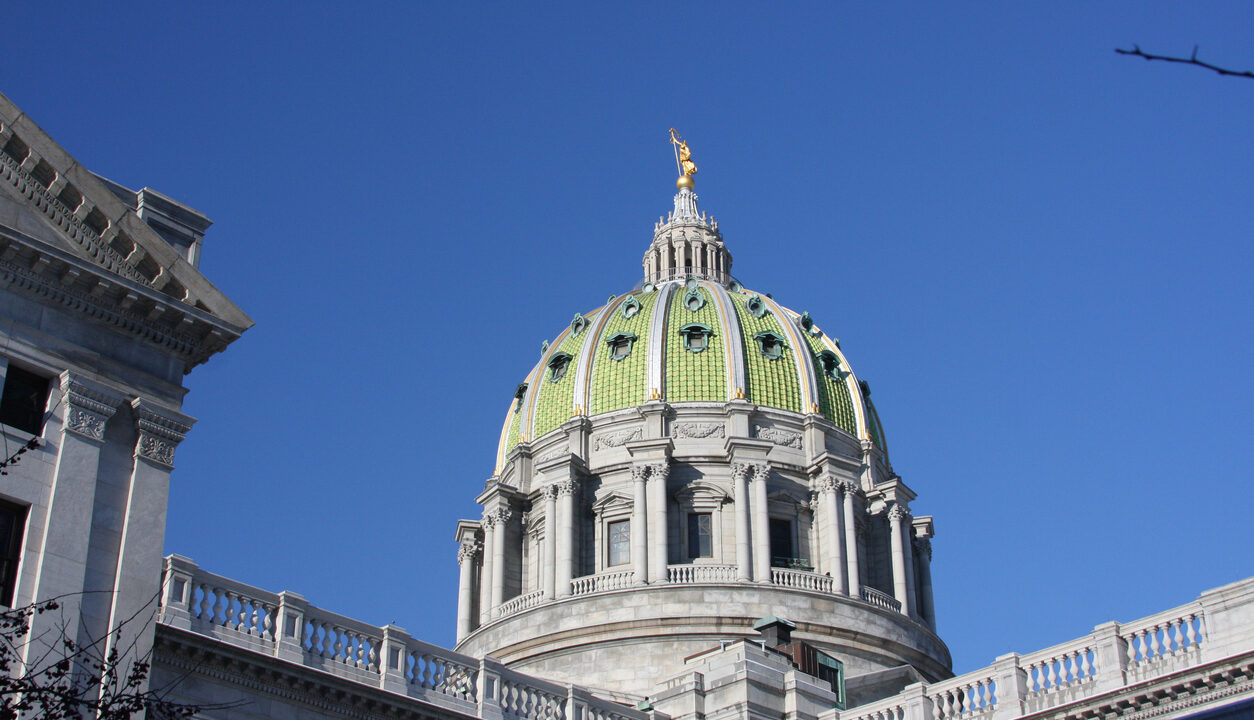Fact Sheet

2024–25 State Budget Analysis
Key Points
- Pennsylvania’s $47.6 billion 2024–25 budget creates a $3.6 billion structural deficit.
- This will exhaust General Fund reserves, which will require draining from the Rainy Day fund—illegally—or raising taxes in 2025–26.
- The budget represents a $2.7 billion spending increase (counting $500 million in borrowing) versus $0.2 billion in tax reductions. The 4.9 percent spending increase surpasses the Taxpayer Protection Act (TPA) index.[1]
- Instead of funding students through Lifeline Scholarships, this budget increases funding for school districts even for students they no longer educate—putting adults before children.
- The budget includes more corporate welfare and debt. This isn’t the path to prosperity. It copies the policies of California and New York rather than growing states.
Summary
For families and businesses, there’s not much to be happy about in this state budget. Gov. Josh Shapiro reneged on his promise to enact Lifeline Scholarships for low-income kids trapped in the worst-performing schools for the second year in a row, he failed to provide significant tax relief, and he abandoned his commitment to significant regulatory reform.
Despite the state Senate passing meaningful legislation for families and businesses—including Lifeline Scholarships, codified as the Pennsylvania Award for Student Success (PASS) Scholarship Program, that would provide $10,000 to families to attend the school of their choice; tax cuts of nearly $900 per family;[2] and a slew of bills to reduce regulatory red tape[3]—this budget doesn’t include any of these wins for Pennsylvania.
Our latest polling has three-in-four Pennsylvanians—an overwhelming majority—supporting Lifeline Scholarships. Another 78 percent hoped to see this year’s budget cut taxes.[4] But the 2024–25 state budget fails on both accounts; it will raise taxes and leave kids behind. The people of Pennsylvania deserve better.
The Good
- Education: More scholarships for K–12 students via a $75 million increase to the Educational Improvement Tax Credit (EITC) and the Opportunity Scholarship Tax Credit (OSTC) programs and implementation of parts of Grow PA,[5], [6] a reform that shifts higher education funding from universities to students. Specifically, the budget allocates $25 million for Grow PA scholarships. Recipients must live in Pennsylvania, pursue an in-demand career, and work in the commonwealth after graduation.[7] It also creates a scholarship program to attract out-of-state students and expands the Ready to Succeed Scholarship program.
- Regulatory Reform: The budget includes the Streamlining Permits for Economic Expansion and Development (SPEED) Program to streamline permits from the Department of Environmental Protection (DEP), including the option of a third-party reviewer and permit tracking system.[8] It does not address the broader problem of overregulation. The budget also allows retailers to sell Ready-to-Drink Cocktails.[9]
- Net Operation Loss (NOL) Reform: The budget includes modest tax reforms for some new businesses, increasing the cap per year on NOL by 10 percent for prospective losses only.[10] While this is a small improvement, Pennsylvania remains one of only two states to cap NOL.
The Bad
- Grows the Budget Deficit: The 2024–25 budget spends $3.7 billion more than ongoing revenue. Based on projections, Harrisburg will need to hike taxes or illegally draw transfers from the Rainy Day Fund to balance the budget next year, in 2025.
- Education: The budget fails to create Lifeline Scholarships to fast-track education opportunity to more than 250,000 students assigned to failing schools despite the governor’s alleged support. The budget dramatically increases funding for public schools by $1.3 billion, or more than 8 percent, representing the second-biggest increase ever.[11]
- This includes a $34 million cut to cyber charter schools and $100 million for school districts based on the number of students who have left for cyber charter schools, giving districts more money for students they no longer educate.
- Mass Transit Handout: Hidden in a 2023–24 budget supplemental is a $85 million handout to increasingly dangerous urban mass transit systems with declining ridership.[12]
- Picking Winners and Losers: Instead of broad-based tax reform, like legislation passed by the Senate with an overwhelming bipartisan basis, the budget includes borrowing $500 million for PA SITES,[13] a corporate welfare program designed to prepare industrial sites for new development.
- This is in addition to the $1.3 billion Pennsylvania spends on corporate welfare each year (sixth highest in the nation since 2017).[14]
Conclusion
As a result, thousands of children will spend another year trapped in underperforming, unsafe schools, taxpayers will face tax hikes in 2026, and businesses will continue to face substantial regulatory hurdles trying to set up shop in Pennsylvania and create jobs. The updated budget chart book shows how Pennsylvania is on the wrong track.
[1]Commonwealth Foundation, “Taxpayer Protection Act: Facts and Myths,” March 3, 2022, https://commonwealthfoundation.org/research/taxpayer-protection-act/; Rep. Ryan Warner, House Bill 71, Pennsylvania General Assembly, Regular Session 2021–22, https://www.legis.state.pa.us/cfdocs/billInfo/bill_history.cfm?syear=2021&sind=0&body=H&type=B&bn=71.
[2]Commonwealth Foundation, “Pa. Senate’s Proposed Tax Cuts Would Save Families $900 per Year,” May 29, 2024, https://commonwealthfoundation.org/2024/05/29/pa-senate-tax-cuts/.
[3]Commonwealth Foundation, “Regulatory Reforms Stalled in State House,” April 4, 2024, https://commonwealthfoundation.org/research/regulatory-reforms-state-house-pa/.
[4]Commonwealth Foundation, “Common Ground in the Commonwealth Poll, Q2 2024 Survey,” July 2024, https://commonwealthfoundation.org/wp-content/uploads/2024/06/Common-Ground-Q2-2024-toplines.pdf.
[5]Sen. Michele Brooks et al., Act No. 55 of 2024 (Senate Bill 700), Pennsylvania General Assembly, Regular Session 2023–24, July 11, 2024, https://www.legis.state.pa.us/cfdocs/billInfo/billInfo.cfm?sYear=2023&sInd=0&body=S&type=B&bn=0700.
[6]Sen. Scott Martin, Senate Bill 1150, Pennsylvania General Assembly, Regular Session 2023–24, https://www.legis.state.pa.us/cfdocs/billinfo/bill_history.cfm?syear=2023&sind=0&body=S&type=B&bn=1150.
[7]Christian Smith, “State Budget Done: Education, Tax Reforms Take Center Stage,” Center Square, July 12, 2024, https://gantnews.com/2024/07/12/state-budget-done-education-tax-reforms-take-center-stage/.
[8]Rep. Paul Takac, Act No. 54 of 2024 (House Bill 2310), Pennsylvania General Assembly, Regular Session 2023–24, July 11, 2024, https://www.legis.state.pa.us/cfdocs/billInfo/billInfo.cfm?sYear=2023&sInd=0&body=H&type=B&bn=2310.
[9]Sen. Mike Regan, Senate Bill 688, Pennsylvania General Assembly, Regular Session 2023–24, https://www.legis.state.pa.us/cfdocs/billinfo/billinfo.cfm?syear=2023&sind=0&body=S&type=B&bn=0688.
[10]Sen. Camera Bartolotta, Act No. 56 of 2024 (Senate Bill 654), Pennsylvania General Assembly, Regular Session 2023–24, July 11, 2024, https://www.legis.state.pa.us/cfdocs/billInfo/billInfo.cfm?sYear=2023&sInd=0&body=S&type=B&bn=0654.
[11]Brooks et al., Act No. 55 of 2024 (Senate Bill 700).
[12]Sen. Scott Martin, Act No. 1A of 2024 (Senate Bill 1001), Pennsylvania General Assembly, Regular Session 2023–24, July 11, 2024, https://www.legis.state.pa.us/cfdocs/billInfo/billInfo.cfm?sYear=2023&sInd=0&body=S&type=B&bn=1001.
[13]Takac, Act No. 54 of 2024 (House Bill 2310).
[14]Commonwealth Foundation, “Corporate Welfare in the 2024–25 Budget,” March 7, 2024, https://commonwealthfoundation.org/research/corporate-welfare-2024-25-pa-budget/.